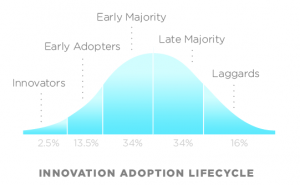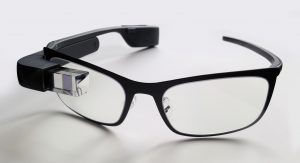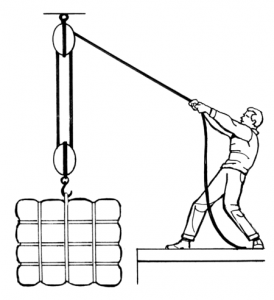BLEEDING EDGE: “A product or service that is so new it has not been widely adopted by consumers and therefore carries a higher degree of uncertainty as to how it will fit in with existing goods and services. Something described as bleeding edge would be considered more advanced than something considered ‘cutting edge’. The higher degree in risk associated with the product or service means that the consumer might be “cut” by using such a new good if it fails to gain market acceptance. The term is often used to refer to new technology.” – Investopedia
The trouble with buzzwords is they quickly become clichés. I had a client who wanted their billing system described as state-of-the-art. When I asked what made it so, she replied that they had just added QuickBooks compatibility – in 2012.
 Fortunately, I count quite a few true innovators among my clients. Of course, the trouble with being a true innovator is distinguishing yourself from impostors like my QuickBooks client. If everyone claims to be state-of-the-art or cutting edge, then what is a true pioneer to do? Innovate with words, of course! Others may be on the leading edge, but we are on the bleeding edge. Mmmm.
Fortunately, I count quite a few true innovators among my clients. Of course, the trouble with being a true innovator is distinguishing yourself from impostors like my QuickBooks client. If everyone claims to be state-of-the-art or cutting edge, then what is a true pioneer to do? Innovate with words, of course! Others may be on the leading edge, but we are on the bleeding edge. Mmmm.
The only trouble is bleeding edge actually has a negative connotation – namely, technology that is so advanced or so outside the norm as to be risky. Anyone here invest in a Divx DVD player? A BeOS computer? How about Google Glass? You got cut by the bleeding edge, girl. Yes, you did.
So why saddle your company profile or marketing copy with such a deadly phrase? Is it because you heard someone else use it incorrectly? Or is it because you can’t bear to be plain-Jane leading edge? If you’re a true innovator, why not spend some of your R & D dollars on a copywriter? She’ll cook up any number of glittery words to describe your position of visionary global leadership in strategic best-in-breed future-tech development without resorting to iffy phrases like bleeding edge. Your marketing materials will still be riddled with tired clichés, but at least they’ll be the clichés you want. Put a Band-Aid on that, girl.
– Otto E. Mezzo
References: http://www.investopedia.com/terms/b/bleeding-edge.asp








